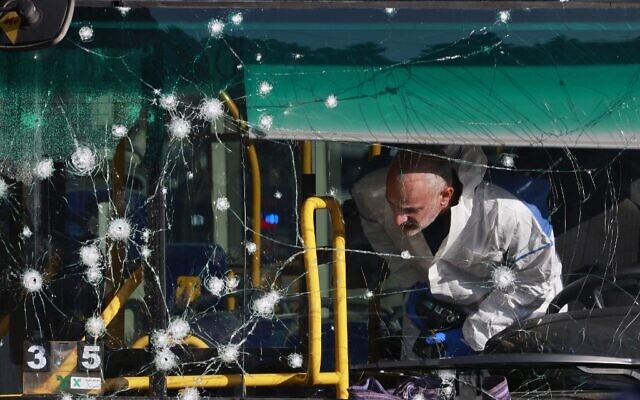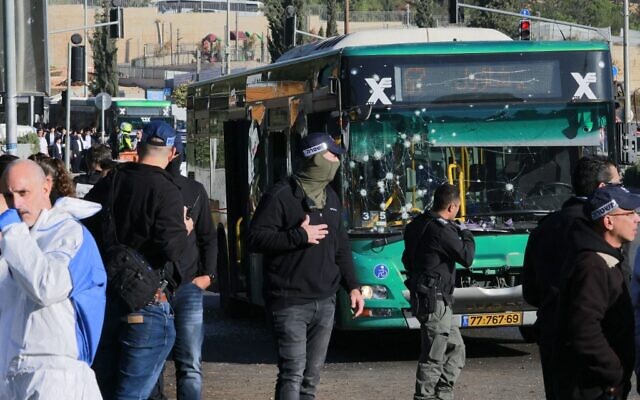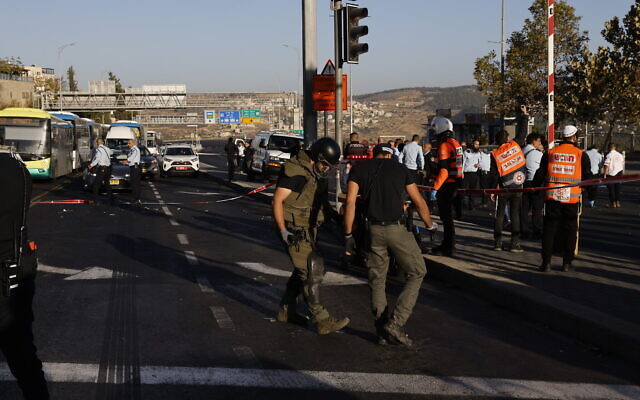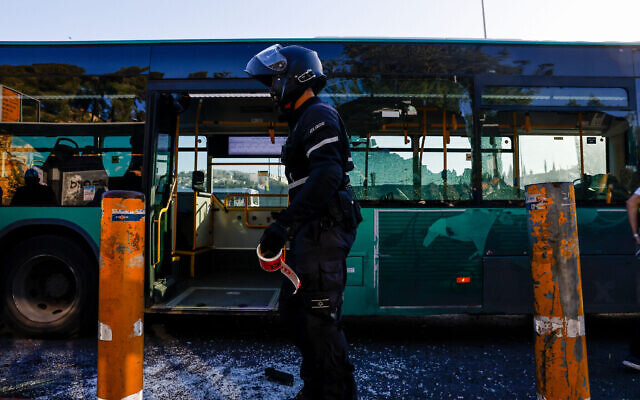Bombings target bus stops at entrances to Jerusalem
One person has been killed and 18 injured as two bombings target entrances to Jerusalem. Initial reports believe devices may have been left in bags.

Two explosions at two bus stops near entrances to Jerusalem on Wednesday morning have left one person dead and at least another 18 people hurt, police and medics said.
Police described the explosions as a terror bombing attack.
The first explosion occurred close to the main entrance of Jerusalem in Givat Shaul, shortly after 7am, peak commuter hour.
Twelve people at the bus stop were injured in the blast, including two critically and two seriously, medical officials said.
One of the victims later died at Shaare Zedek Medical Center, hospital officials said.
A second blast occurred shortly after 7:30am, at Ramot junction, another entrance to Jerusalem.
Three people were lightly hurt by shrapnel in the second explosion, and four people were also taken to the hospital suffering from anxiety, medics said.

A bus at the station was seen damaged by the explosion. It was unclear if the victims were at the station or on the bus itself.
The explosions were thought to have been caused by an explosive device left in bags, according to initial Hebrew-language media reports.
Visiting the scene, Israel Police Commissioner Kobi Shabtai said there may have been two attackers.
“This is a framework of attack that we haven’t seen for many years,” Shabtai said.
He called on the public to be alert for suspicious packages, and said officers were scanning the city for other possible devices.
There were no immediate claims of responsibility.
Security services were sweeping the area in an attempt to find suspects connected to the explosions.

Police said they had closed off the Route 1 highway following the first blast.
Public Security Minister Omer Barlev spoke with the police chief and was expected to visit the scenes of the attacks, his office said.
Defense Minister Benny Gantz held an assessment with the Shin Bet security agency chief, deputy army chief, and other senior military and police officials, following the attack.
The explosions came amid heightened tensions, following a series of Palestinian attacks that have left 29 people in Israel and the West Bank dead since the start of the year.
In recent months there have been several stabbing and attempted stabbing attacks in Jerusalem, mostly in the Old City. Last month, a Palestinian gunman killed an Israeli soldier at a checkpoint near Jerusalem.

In the spring, the military launched a major anti-terror offensive in West Bank following the attacks.
The operation has netted more than 2,000 arrests in near-nightly raids, but has also left over 130 Palestinians dead, many of them — but not all — while carrying out attacks or during clashes with security forces.
Bombings on buses and in public places were a hallmark of the Second Intifada from 2000 to 2005, but mostly subsided over the past 17 years, which Israeli officials attributed to increased security measures, including the West Bank security barrier, and better intelligence.
In 2016, the Hamas terror group was accused of bombing a bus in Jerusalem, leaving 21 people injured. And in 2011, a bomb hidden in a backpack exploded at a bus stop outside the Jerusalem International Convention Center, killing two and injuring dozens more.
A spokesperson for the Hamas terror group has hailed the bombing attacks.
“The action conveyed the message to the occupation by saying that our people will stand firm on their land and cling to the path of resistance,” Mohammad Hamada said in a statement.
“The coming days will be intense and more difficult for the enemy. The time has come for the creation of cells that are spread all over Palestine and are ready for a confrontation,” he added.
This is a developing story.
Times of Israel

comments